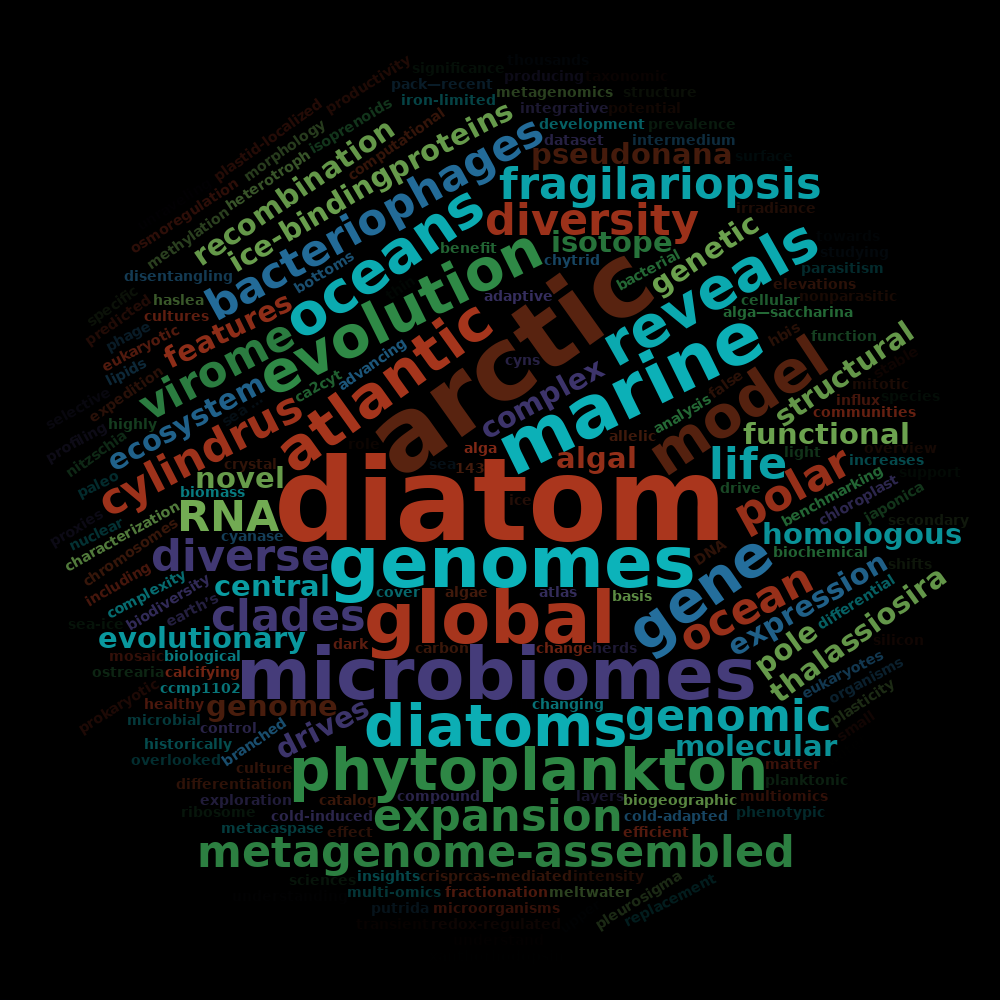Abstract
Microalgae contribute approximately 50% of global primary production. Yet, how they respond to environmental change and how their diversity is maintained on a global level from pole to pole is only poorly known. This presentation will address this knowledge gap by bridging scales from the laboratory evolution of individual algal strains to how environmental conditions of the surface ocean from pole to pole contribute to maintaining not only to biodiversity of microalgae but also their associated microbiomes. This work has revealed that temperature is a key selecting agents in shaping the molecular evolution of microalgal populations. Temperature also determines the interaction of microalgae with their associated prokaryotes evidenced by the first pole to pole study of algal microbiomes. Thus, this presentation will reveal evolutionary mechanisms underpinning the adaptation of microalgae to changing environmental conditions (e.g., global warming) and it will provide insights into how the diversity of algal microbiomes is changing across a latitudinal gradient from the Artic to the Antarctic.


Biography
Prof. Thomas Mock works in the fields of evolution, cell biology, reverse genetics and genomics with marine algae and their microbiomes (e.g., prokaryotes, viruses) from the global upper ocean to understand their ecology, (co-)evolution and adaptation. This work leads to the identification of biological mechanisms that shape the evolution of algal microbiomes and are therefore responsible for their adaptation to different environmental conditions including climate change. He pioneered contributions that advanced the field of algal research through method development (e.g., CRISPR/Cas-based genome engineering, ribosome profiling) and multi-omics approaches. Prof. Mock published highly cited articles in Nature, Nature Methods, Science, Cell, PNAS, and Nature Communications. He is Co-editor in Chief of the ‘Journal of Phycology’. He was elected to the Royal Society of Biology and the Higher Education Academy in the UK. In 2019, he was appointed Guest Professor of the Ocean University of China, and in 2022, he has received the Qilu Friendship award. In 2023, he became honorary citizen of the Shandong Province.